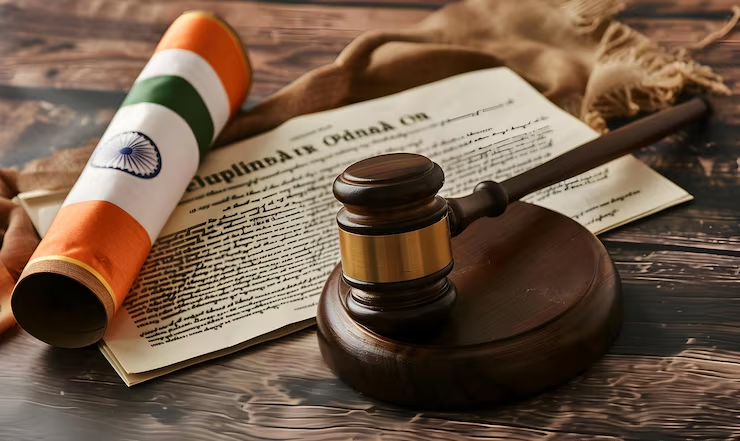Civil law forms the foundation of justice in everyday life. It governs the relationships and disputes between individuals, organizations, or both, ensuring that rights are protected and obligations are fulfilled. Across India, cities like Bhopal and Indore have emerged as hubs of civil litigation and legal services, where experienced lawyers work diligently to resolve conflicts that affect the social and economic fabric of society.
What is civil law?
Civil law deals with private rights and remedies rather than criminal offenses. It is concerned with disputes between individuals, families, businesses, or institutions where compensation or specific performance, not punishment, is sought. Civil law includes a wide range of legal issues, such as property disputes, contract breaches, family matters, recovery suits, injunctions, tenancy issues, and torts like defamation or negligence.
In India, civil law is primarily codified under the Code of Civil Procedure, 1908, which provides a procedural framework for the filing, trial, and execution of civil cases. Alongside this, various substantive laws like the Indian Contract Act, the Transfer of Property Act, the Specific Relief Act, and the Hindu Marriage Act regulate the rights and obligations of parties involved in civil disputes.
The Importance of Civil Justice
Civil justice is central to maintaining public confidence in the legal system. It ensures that individuals have access to fair remedies when their rights are violated. From ownership disagreements to disputes over contractual obligations, civil courts act as guardians of lawful conduct and social order. A well-functioning civil system promotes predictability and accountability, encouraging both individuals and institutions to act responsibly.
Role of Civil Lawyers in Bhopal and Indore
Civil lawyers play a vital role in guiding their clients through the complex legal process. Their primary duty is to protect the legal rights of individuals or organizations and represent them before courts and tribunals. The role of a civil lawyer extends far beyond litigation. They assist clients in documentation, negotiation, settlement, and legal compliance, often preventing disputes from escalating into full-blown litigation.
A civil lawyer’s work can be divided into several key responsibilities.
- Legal Consultation and Advisory
Civil lawyers provide expert advice on matters relating to property, contracts, family arrangements, and succession. They interpret the relevant legal provisions and help clients understand their rights and obligations before taking any action. - Drafting and Documentation
Drafting is the backbone of civil practice. Lawyers prepare pleadings, affidavits, agreements, notices, and deeds with precision to ensure legal validity. Proper documentation prevents ambiguity and reduces future disputes. - Representation Before Courts
In case of litigation, civil lawyers represent clients before civil courts, tribunals, and other quasi-judicial bodies. They present facts, argue points of law, cross-examine witnesses, and rely on precedents to strengthen their case. - Negotiation and Mediation
Many civil disputes can be resolved through negotiation or mediation. Skilled civil lawyers act as intermediaries to arrive at amicable settlements, saving clients from the time and expense of prolonged court battles. - Execution and Compliance
Once a judgment is delivered, civil lawyers also assist in the execution of decrees, ensuring that the winning party receives the remedy granted by the court.
Civil Law Practice in Bhopal and Indore
Both Bhopal and Indore have developed as important legal centers in Madhya Pradesh. The District Courts, Family Courts, Consumer Commissions, Debt Recovery Tribunals, and the High Court Bench at Indore handle a significant number of civil cases each year. The civil bar in these cities is known for its diversity and expertise in areas ranging from real estate litigation to corporate civil suits.
In Bhopal, legal practice often involves disputes over land ownership, tenancy, succession, and family settlements due to rapid urban expansion and property transactions. Indore, being a major commercial hub, witnesses a higher volume of business and contract-related litigation. Lawyers in both cities have adapted to these trends by developing specialized practice areas while maintaining strong ethical standards and professional conduct.
Chansoriya Law Chambers and Civil Law Practice
Chansoriya Law Chambers is one of the reputed law offices engaged in a broad spectrum of civil practice in Madhya Pradesh. The firm’s civil law division handles cases involving property disputes, recovery suits, injunction matters, family law issues, and contract enforcement. Their approach reflects a blend of legal scholarship, practical strategy, and ethical advocacy.
The firm emphasizes meticulous preparation of pleadings and evidence to ensure that each case stands on a strong legal footing. With experience before district courts and the High Court, the lawyers of the chamber assist clients through every stage of litigation—from consultation and filing to argument and execution.
Chansoriya Law Chambers also encourages alternative dispute resolution methods like mediation and arbitration whenever possible. This approach not only saves judicial time but also helps preserve relationships that might otherwise be damaged through prolonged litigation. The chamber’s civil law practice demonstrates how a balanced approach between assertive advocacy and respectful persuasion can lead to effective outcomes in court.
Ethical and Professional Standards in Civil Practice
Professionalism is at the heart of effective civil advocacy. A civil lawyer’s duty is not merely to win cases but to assist the court in the pursuit of justice. Lawyers must maintain confidentiality, integrity, and fairness in all dealings. The best civil practitioners are known not just for their legal acumen but also for their humility and discipline before the bench.
Civil lawyers are expected to advise clients honestly, even when the advice may be against immediate interest. They must also refrain from unnecessary litigation and instead promote reconciliation when justice can be achieved without court intervention. Such ethical responsibility enhances the dignity of the legal profession and strengthens public trust in the system.
Challenges and Evolving Trends in Civil Law
Modern civil practice is rapidly evolving. With technological advancements and changing social structures, new challenges arise. E-filing of cases, virtual hearings, and digital documentation have changed how civil litigation operates. Lawyers now require not only traditional legal knowledge but also adaptability to digital platforms.
Moreover, as society becomes more aware of its rights, there is an increasing demand for transparency and efficiency in civil adjudication. Civil lawyers must balance legal expertise with empathy, understanding that each case represents real human concerns—property, livelihood, or family relationships.
Conclusion
Civil law remains one of the most crucial branches of the legal system. It provides a framework for fairness, order, and accountability in daily interactions. Civil lawyers in cities like Bhopal and Indore uphold these principles by representing their clients with diligence and humility, ensuring that justice is not only done but also seen to be done.
The civil law practice at Chansoriya Law Chambers exemplifies the essence of this tradition. Through careful advocacy, ethical conduct, and deep commitment to justice, civil lawyers continue to play a vital role in maintaining the rule of law and public confidence in the judiciary.





